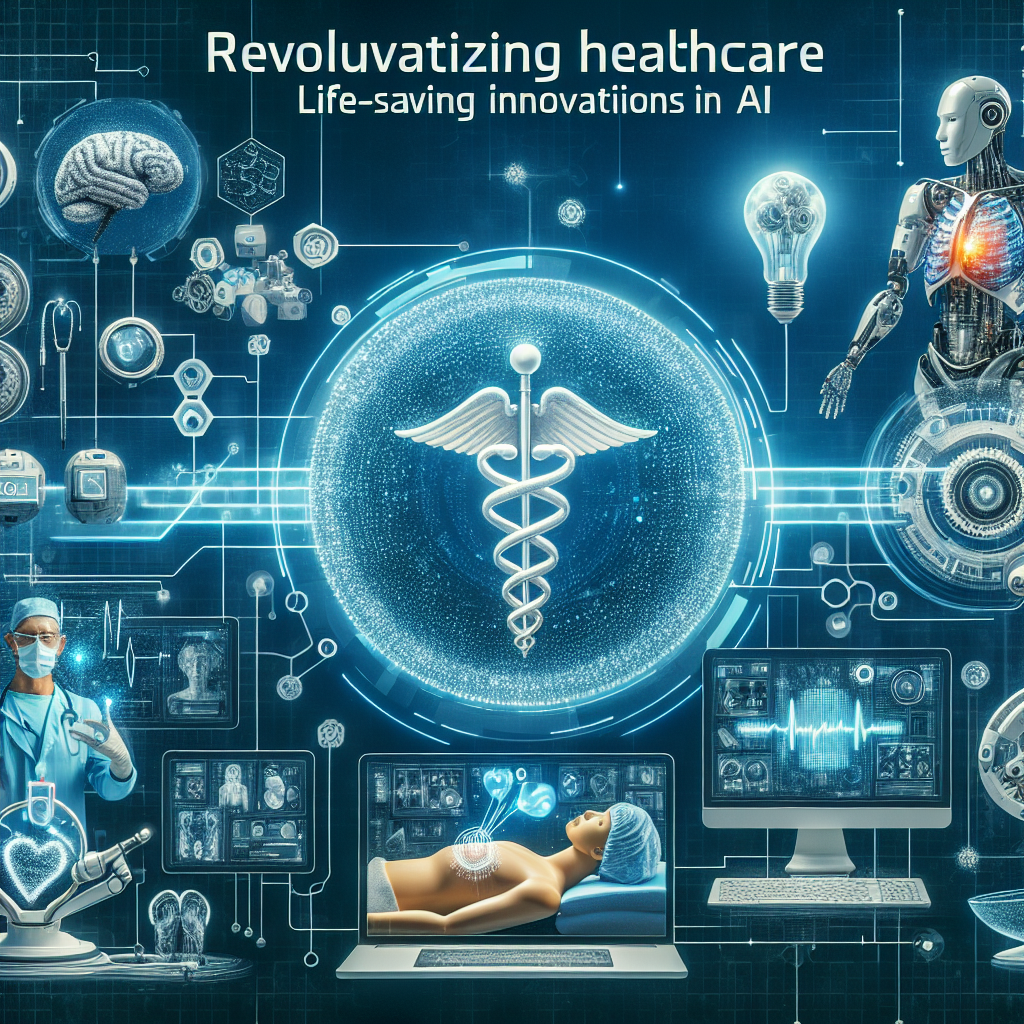Artificial Intelligence (AI) has become increasingly integral to the advancement of healthcare, demonstrating its ability to revolutionize patient care, streamline operations, and enhance clinical decision-making. Consequently, the adoption of AI technologies within healthcare systems globally has prompted innovations that are saving lives and improving health outcomes. Let’s delve into how AI is transforming the future of healthcare.
1. Improved Diagnostics
AI algorithms, especially those that leverage machine learning and deep learning, have exhibited exceptional accuracy in disease diagnosis. For example, AI can interpret medical images, like X-rays and MRIs, with a precision that often exceeds that of human radiologists. A prominent case is Google’s DeepMind, which has created AI capable of detecting eye diseases and specific cancers more accurately than human practitioners. By identifying conditions at earlier stages, AI facilitates timely interventions that can save lives.
2. Customized Treatment Plans
AI is changing the approach healthcare providers take towards treatment. Utilizing predictive analytics and data mining, AI systems can scrutinize extensive patient data—including medical backgrounds, genetic profiles, and lifestyle habits—to construct personalized treatment plans. For instance, AI can aid oncologists in determining the most effective chemotherapy protocols for cancer patients based on their unique genetic compositions, enhancing response rates and reducing side effects.
3. Patient Monitoring and Management
Wearable technology enhanced by AI has revolutionized patient monitoring and management. Devices such as smartwatches and fitness trackers gather real-time health data, including heart rate and activity levels. AI algorithms process this information, providing valuable insights to healthcare professionals that enable proactive interventions. For individuals with chronic illnesses like diabetes or heart disease, AI can support remote monitoring, alerting providers to any critical changes in a patient’s condition.
4. Predictive Analytics for Disease Outbreaks
AI possesses the capability to analyze extensive data from diverse sources—ranging from social media to health records and environmental factors—to forecast disease outbreaks. For example, Google Flu Trends previously utilized machine learning to examine search queries, accurately predicting influenza outbreaks ahead of traditional reporting methods. Such predictive power allows for quicker public health responses, which can potentially save numerous lives through early intervention.
5. Robotic-Assisted Surgery
Surgical robots powered by AI provide greater precision and control during medical procedures. These robots support minimally invasive surgeries, resulting in shorter recovery times, reduced pain, and fewer complications for patients. Additionally, AI assists surgeons in making intraoperative decisions, enhancing the overall effectiveness of surgical outcomes. Innovations such as the da Vinci Surgical System exemplify how robotics and AI are advancing surgical care.
6. AI-driven Virtual Health Assistants
AI-powered virtual assistants are transforming patient interactions with healthcare services. These chatbots and virtual health aids assist patients in scheduling appointments, answering medical inquiries, and providing health recommendations. Companies like Babylon Health have developed AI-driven symptom checkers that guide users through a series of questions to evaluate symptoms and suggest appropriate care. This technology enhances healthcare accessibility, particularly for individuals in remote locations.
7. Accelerated Drug Discovery and Development
AI is speeding up the drug discovery process, which traditionally requires significant time and financial investment. By analyzing chemical and biological data, AI algorithms can identify potential drug candidates and predict their efficacy. This innovation significantly reduces the time and resources needed to bring new medications to market, a crucial factor during public health emergencies like the COVID-19 pandemic.
Challenges and Considerations
Despite the promising impact of AI in healthcare, various challenges persist. Issues related to data privacy, algorithmic bias, and the necessity for regulatory oversight must be addressed to guarantee patient safety and fair treatment. Moreover, incorporating AI into pre-existing healthcare frameworks necessitates training for healthcare professionals and overcoming resistance to technological transition.
Conclusion
AI is a transformative element in healthcare, catalyzing innovations that save lives and enhance patient care. From advanced diagnostics and tailored treatment plans to improved surgical precision and predictive analytics, AI’s applications are extensive and diverse. As the healthcare sector increasingly adopts AI advancements, the possibilities for enhancing health outcomes are limitless. However, it is vital to navigate the ethical and practical challenges that accompany these technologies to ensure their benefits are universally realized.

